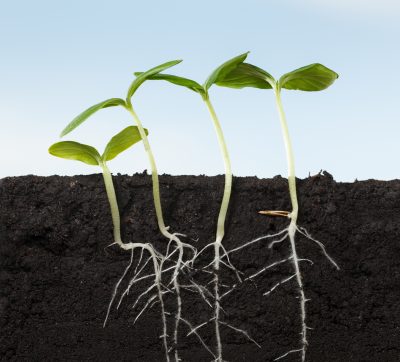Madrid. A new heat-sensing gene identified by scientists at the University of California at Riverside may be the answer to the need for plants to withstand global warming.
By 2050, rising temperatures could reduce crop yields by a third. Warmer temperatures tell plants that summer is coming. By anticipating less water, they flower early and then lack the energy to produce more seeds, so crop yields are lower. This is problematic, as the world’s population is estimated to grow to 10 billion humans, with much less food available.
“We need plants that can withstand warmer temperatures, have a longer time to flower and a longer growth period,” Meng Chen, a professor of botany and plant science at Riverside, said in a statement.
“But, to modify the temperature responses of plants, you first have to understand how they work. That is why it is very important to identify that gene that allows the response to heat. “
The new gene, described in Nature Communications, is the second they have found involved in temperature sensing.
They located the first, called Hemera, two years ago. They then did an experiment to see if they could identify other genes involved in controlling the temperature sensing process.
Plants generally react to changes of even a few degrees in the weather. For this experiment, the team started with a mutant Arabidopsis plant completely insensitive to temperature, and modified it to become reactive once again.
Examining the genes of this twice-mutated plant revealed the newer, RCB, whose products work closely with Hemera to stabilize the heat-sensing function. “If you knock out any of the genes, your plant is no longer sensitive to temperature,” Chen noted.
Both Hemera and RCB are required to adjust the abundance of a set of master genetic regulators that serve multiple functions, react to temperature and light, and turn plants green. These proteins are distributed to two different parts of plant cells: the nucleus and organelles called chloroplasts.
Chen said that in the future his lab will focus on understanding how these two parts of the cell communicate and work together to achieve growth, greening, flowering and other functions.
“When the light or the temperature changes, the genes both in the nucleus and in the chloroplasts change their expression. We believe that Hemera and RCB are involved in the coordination of gene expression between these two cell compartments ”, explained the scientist.
Ultimately, the goal is to modify the response to temperature to ensure the future of our food supply.
“We were excited to find this second gene. It is a new piece of the puzzle. Once we understand how everything works, we can modify it and help crops to better cope with climate change ”, concluded the expert.

